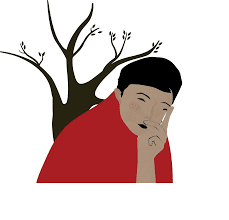Avatamsaka – Sanskrit
Hua Yen (Hua Yan) –
Chinese
Flower Garland (Flower Ornament)
– English
The
name Flower
Garland
is
meant to suggest the crowning glory of a Buddha's profound
understanding of ultimate reality.
Known
in Korea as Hwaeom.
Known
in Japan as Kegon.
An
overview of Hua Yen doctrine: “All in one, one in all.”
The
Hua Yen School emphasizes the interdependence and interbeing of all
things, the emptiness of all phenomena, the inherent Buddha nature in
all Beings, and the Bodhisattva Ideal.
Scriptures
of the Hua Yen School: The primary scripture is The Avatamsaka Sutra.
Two other important scriptures are the Lotus Sutra, and the Awakening
of Faith in the Mahayana.
The
Hua Yen School focuses on explaining the ultimate nature of the
world, the universe, all things from the point of view of a Fully
Awakened Being, a Buddha
The
Hua Yen is often said to be the philosophical articulation of Chan
(Zen) meditation.
The
Hua Yen School was influenced by the Yogacara and Madhyamaka Schools
of Buddhism as well as by the Taoist teachings.
Hua
Yen teaches any phenomenon exists only as part of the total nexus of
reality, its existence depends on the total network of all other
things, which are all equally connected to each other and contained
in each other.
The
Hua Yen Patriarchs used various metaphors to explain the teaching.
Two popular metaphors were Indra's Net and a hall of mirrors.
The
third Hua Yen Patriarch, Fa-tsang, illustrated the teaching to the
great Chinese Empress Wu by surrounding a candle on all sides with
mirrors. When the candle was lit it was reflected in each mirror and
each of the reflections was reflected in every other mirror. A
continuous non-ending reflection on reflection.

















































